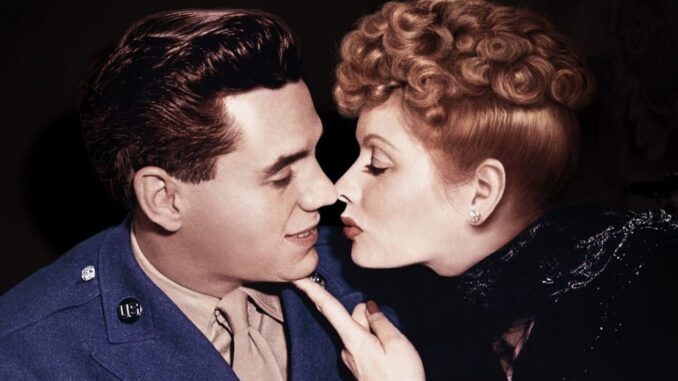
The television classic I Love Lucy has maintained its iconic status for over seven decades. Its humor, groundbreaking moments, and undeniable chemistry between Lucille Ball and Desi Arnaz captivated audiences in ways few shows have. But when the documentary Lucy and Desi was released, many fans—myself included—felt it didn’t do justice to the magic of the original show. Let’s break down why I Love Lucy is a beloved treasure, and why the documentary missed the mark.
Why I Love Lucy Still Resonates After All These Years
I Love Lucy is not just any old TV show; it’s a timeless piece of entertainment that continues to resonate with audiences. Whether it’s the slapstick humor, the groundbreaking special effects for the time, or the heartfelt moments between Lucy and Ricky, there’s a reason the show has stood the test of time.
The Genius Behind Lucille Ball’s Comedy

Lucille Ball was a comedic genius who had a unique way of engaging with her audience. Her impeccable timing, physical comedy, and facial expressions made her a standout performer. Unlike the scripted humor we often see today, her performances felt organic and truly innovative for the 1950s. This relatability and genius are often lost in more modern interpretations of her legacy, like the documentary.
A Chemistry That Was Unmatched on TV
The on-screen chemistry between Lucille Ball and Desi Arnaz is one of the major reasons why I Love Lucy became such a monumental hit. They played off each other so naturally, and the tension between their characters added layers of complexity to the show. This chemistry is barely scratched in the documentary.
Groundbreaking for Its Time
Back in the 1950s, I Love Lucy broke barriers. The show was one of the first to feature an interracial couple—Lucille Ball, a white actress, and Desi Arnaz, a Cuban actor. At a time when such relationships were controversial, this casting choice was groundbreaking and set the stage for more diverse television representation.
The Birth of Syndication and Reruns
Another key element that makes I Love Lucy a cultural icon is how it revolutionized TV production. It was the first TV show to be filmed in front of a live audience and later distributed through syndication, allowing future generations to enjoy the magic over and over again. The documentary, however, glosses over these significant achievements.
Timeless Comedy That Transcends Generations
Many sitcoms age poorly, but not I Love Lucy. The comedic situations Lucy found herself in were so universally relatable that they transcend time. Whether it’s trying to stomp grapes in Italy or dealing with chocolate assembly lines, the humor is timeless and still relevant today.
The Lucy and Desi Documentary: A Missed Opportunity

While the Lucy and Desi documentary aimed to honor the legacy of these entertainment pioneers, it didn’t quite hit the mark. It attempted to delve into the personal and professional lives of Lucille Ball and Desi Arnaz, but something felt off. Let’s look at why the documentary falls short in comparison to the show.
Lack of Emotional Depth
The documentary aimed to give viewers a behind-the-scenes look at Lucille Ball and Desi Arnaz’s lives, but it skimmed over key emotional aspects. Their turbulent marriage, the sacrifices made for their careers, and the eventual downfall of their relationship are mentioned but never explored with enough emotional depth. Fans were left wanting more.
Overemphasis on Facts, Not on Feelings
Instead of focusing on the emotional core of Lucille and Desi’s partnership, the documentary leaned too heavily on historical facts. While it’s important to understand the timeline of their careers, viewers wanted to connect with the people behind the legend. The emotional storytelling was lacking, which made the documentary feel more like a history lesson than a tribute.
Not Enough Focus on the Creative Process
One of the most interesting parts of I Love Lucy is how it was made. The sitcom broke new ground with the multi-camera setup, live studio audience, and clever writing. However, the documentary barely touches on this creative process. Fans of the show would have loved to see more behind-the-scenes insights, but those moments were few and far between.
Overshadowed by Nostalgia
The documentary relied too much on the nostalgia of I Love Lucy without adding anything new. While fans of the show already know how great it is, they didn’t need a rehash of what they’ve already seen. Instead, a deeper look into Lucille and Desi as people would have made for a more compelling watch.
Missed the Mark on Highlighting Their Individual Struggles
Lucille Ball was more than just Lucy Ricardo, and Desi Arnaz was more than just Ricky. Both had incredible lives filled with personal and professional highs and lows. The documentary skimmed over their individual struggles, which could have added a layer of depth and vulnerability to their story.
How the Documentary Could Have Been Better
More Emotional Depth Needed
If the documentary had focused more on Lucille and Desi’s emotional journeys—particularly their personal struggles—it would have resonated better with audiences. People love Lucy and Desi because they feel real. By glossing over their emotional struggles, the documentary missed a huge opportunity to connect with viewers on a deeper level.
Greater Emphasis on Their Legacy
While the documentary does discuss their influence on television, it doesn’t go far enough to truly showcase just how monumental their contributions were. A more in-depth look at how they changed television forever would have given the documentary a stronger narrative.
More Behind-the-Scenes Content Needed
One thing that always fascinates fans is the behind-the-scenes process of creating iconic TV shows. A deeper dive into how I Love Lucy was made—complete with interviews from people who worked on the show—would have added value to the documentary.
Conclusion
In the end, I Love Lucy remains a timeless gem, one that continues to captivate audiences across generations. Unfortunately, the Lucy and Desi documentary didn’t capture the same magic. While it had good intentions, it lacked the emotional depth, storytelling, and behind-the-scenes insights that would have made it a fitting tribute to two of television’s greatest legends.